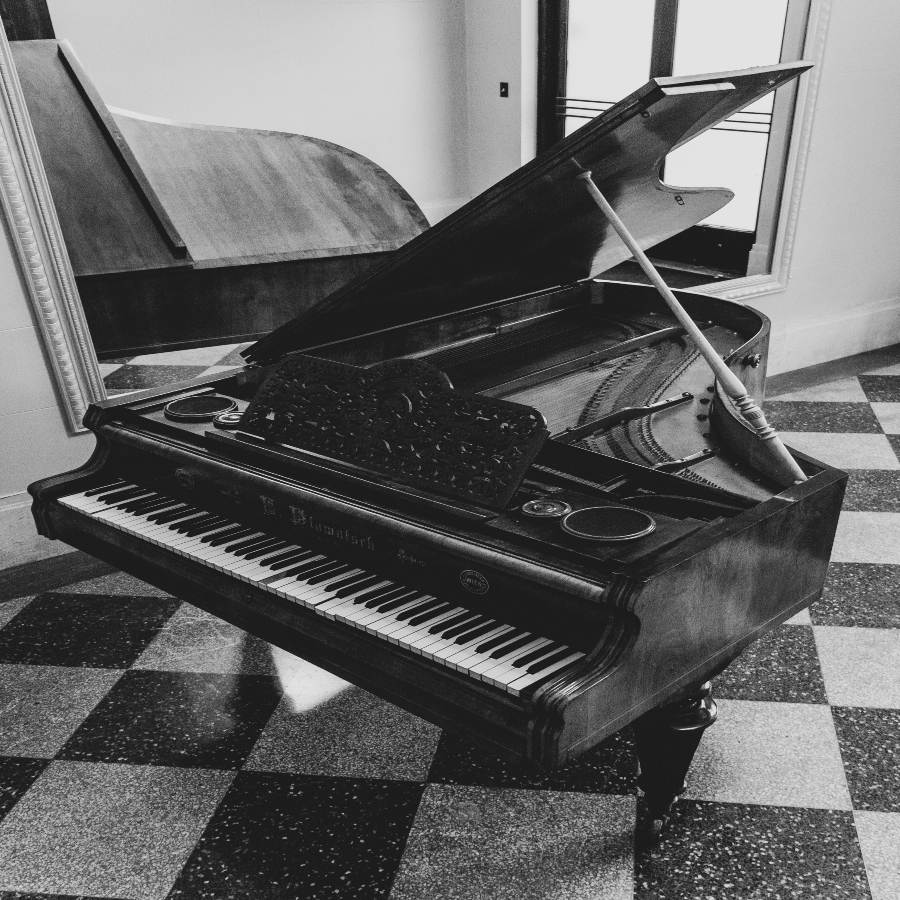“The letter opener?” I said to my husband in the middle of the night.
“I panicked,” he said, rolling the letter opener between his fingers by his side as if it would disappear.
There was a fire next door, but we lived in a rowhome, so there might as well have been a fire in our house. The smoke alarm pushed us outside at 4 am, and water from the firetruck pushed in through our windows when the flames threatened to spread. By the time they were done, our front rooms were totally fucked.
“We have to leave soon,” I said. The saturated carpet made sucking sounds and pulled on my knee when I walked. “I can’t find my x-rays and discs.”
“I’ll help,” my husband said, on hold with our insurance company. He put his phone on speaker mode and set it down on the dining room table along with the letter opener.
“Billy Joel?” I said.
“Underappreciated.”
It was March during the first days of this false Spring. I took a coat out of the closet and then put it back. “If my coat shrinks…” The line went silent. My husband looked at his phone. The song restarted.
“The doctor said we could reach out this morning for anything. I’m sure they have copies,” he said. “It’ll be ok.”
“Todd, nothing about this is ok.”
“I didn’t start the fire,” he snapped back, Billy Joel infiltrating his vocabulary. Then, “I’m sorry. We’ll get new stuff.”
He looked away, and I could tell he knew what he said was stupid.
We later learned a careless worker left a space heater on overnight to speed up the drying time of some joint compound. The prefabbed house—the kind that rich New Yorkers move into—constructed of cheap, porous timber and air-invited combustion.
“We can get a hotel near the hospital,” Todd said.
Walking was a chore. Surgery imminent. Radiation on Wednesdays to shrink the tumor. A new knee, perhaps. I hoped it didn’t spread—I’d seen the ravages firsthand with my sister.
Todd was shuffling through the stack of magazines and mail on the dining room table. I was adamant about not having a dining room table.
We’ll entertain, he said when the movers showed up with a table.
Who?
I don’t know. Our friends? The neighbors?
That was five years ago, and beyond a small housewarming party, we had used the table for eating exactly zero times. For his birthday that year, I got him the letter opener.
The piano I wanted instead probably wouldn’t have been used as much as I intended either, but it could store only so much junk, and it at least held the possibility of beauty.
I was getting irritated. I hadn’t eaten since dinner and wasn’t planning on being awake through missing breakfast. I was supposed to get up, shower, and then go to the hospital. I was supposed to be hiking in Arizona. I was supposed to be preparing for a guest faculty spot at Penn.
“Elliot,” Todd said.
I looked up. He was holding a large envelope.
“The refrigerator?” he asked.
“Right,” I said and deflated. “I put them there last night.”
Todd put the envelope on the table and his hands on my shoulders. He kissed the top of my head. Kept his lips there.
“I worried they’d be useless today,” I said. “I should have put them there last week.”
“You’re going to be ok.”
I didn’t say anything.
“I’m sorry. I don’t mean to discount how you feel,” he said.
I put my hand on his. “We should get going soon.”
“I’ll pack our bags with what we can.”
I sorted through the junk mail and magazines and weeks of brochures and bills that were on autopay. I put them all in neat stacks, squaring up the edges, organizing the clutter. I took the letter opener and absently began tracing the one-way correspondences destined for the trash. Lightly at first, and when the tip of the opener caught a ridge in the wood and chipped it away, I pressed harder. And then harder, carving out the space around the piles that had been growing for months. Flecks of laminate and particle board came away, and I kept tracing and tracing until I heard my husband behind me, standing over me.
“This won’t be here when you come home,” he said. He set down my rain boots and a pair of dry socks. I put them on and stood, and we walked towards the front door.
“Todd,” I said. “It is going to be ok.”
Outside, our brick house was still intact as it was before the fire, and the charred shell of the new building lumbered uselessly under its own hollowness.
“I’d really like a piano,” I said.
“We’ll get you an upright.”
“They practically give them away now.”
“They do, don’t they?”

